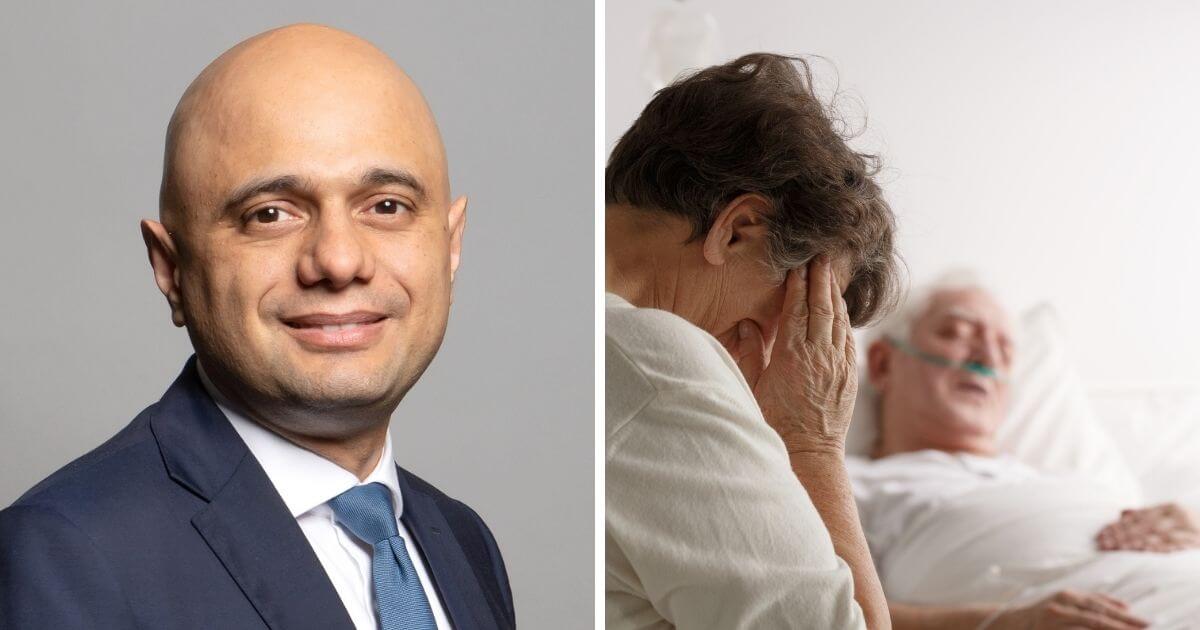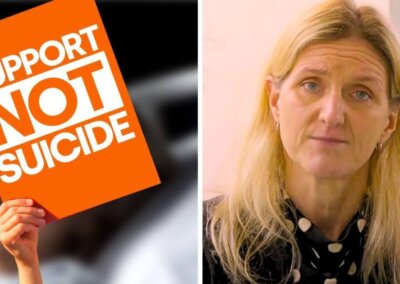Nearly 1,700 medical professionals have written to the Health Secretary, Sajid Javid, to oppose the legalisation of assisted suicide, saying that they will not end a patient’s life, even if asked to.
Ahead of the debate on Baroness Meacher’s Assisted Dying Bill in the House of Lords this Friday, 1,682 doctors, nurses and other medical professionals have signed an open letter to Sajid Javid, asking that the current law that forbids assisted suicide remain unchanged.
The medical professionals argue that the experience of Canada, where assisted suicide and euthanasia were made legal just five years ago and have already substantially expanded, shows that it “is impossible for any government to draft assisted suicide laws which include legal protection from future extension and expansion of those laws”.
A change in the law “affects us all”
The letter goes on to say: “Any change would threaten society’s ability to safeguard vulnerable patients from abuse, it would undermine the trust the public places in physicians, and it would send a clear message to our frail, elderly and disabled patients about the value that society places on them as people”.
The medical professionals also point out that assisted suicide is not a completely individual decision and a change in the law “affects us all”.
“Some patients may never consider assisted suicide unless it was suggested to them. The cruel irony of this path is that legislation introduced with the good intention of enhancing patient choice will diminish the choices of the most vulnerable”.
The letter also points out that 1 in 60 deaths in Belgium are carried out without the consent of the patient.
At the end of the letter, the signatories state: “We would not take patients’ lives – even if they asked us to – but for the sake of us all, and for future generations, we ask that the law remains unchanged.”
Baroness Meacher’s assisted suicide bill
Chair of the pro-assisted suicide group, ‘Dignity in Dying’, Baroness Meacher introduced a Private Members’ Bill on assisted suicide, which will receive its Second Reading this Friday.
The Prime Minister, Boris Johnson, is not supportive of a change in the law.
Right To Life UK spokesperson, Catherine Robinson, said: “These doctors are right to be concerned about the introduction of assisted suicide into England and Wales. It would be a profound corruption of medicine because ‘death’ is not a treatment. The whole point of medicine is the restoration of health and the palliation of symptoms so far as is possible. It is not to take life”.
“Last month, MPs and members of the House of Lords heard from a number of doctors from jurisdictions that had already legalised assisted suicide and/or euthanasia. They all said the same thing: without exception, in jurisdictions that legalise assisted suicide, the law likely expands”.
“It almost always applies to a restricted group of vulnerable persons who are close to death, and soon enough it applies to others. In Belgium, the legislation has extended to children under certain circumstances; in Canada, the law is no longer restricted to those who are terminally ill. If Britain were ever to introduce assisted suicide, it is almost inevitable that exactly the same thing would happen here too”.










